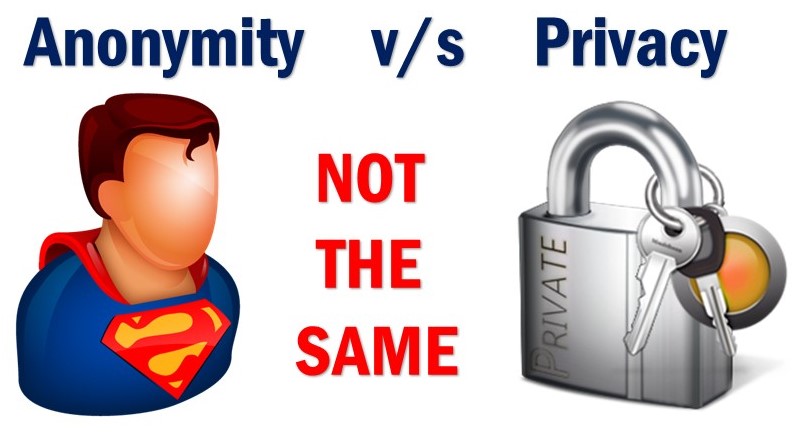Breaking Free from Facebook’s Dominance
With billions of active users, Facebook dominates the social media landscape, making it easy to overlook the abundance of alternative social networking sites that offer unique features, benefits, and communities. However, relying solely on Facebook can lead to algorithmic feed fatigue, where users are served the same content repeatedly, and miss out on opportunities to discover niche communities and diverse perspectives. Exploring social networking sites similar to Facebook can revitalize online interactions and provide a more comprehensive social media experience.
Uncovering Hidden Gems: Unique Features and Benefits
When exploring social networking sites similar to Facebook, it’s essential to uncover the unique features and benefits that set them apart. One such platform is Ello, a creative network that has gained popularity among artists, designers, and musicians. Ello’s focus on aesthetics and creative expression makes it an ideal platform for those seeking a more visually appealing experience. Users can share their work, engage with others, and discover new talents, all while enjoying a clutter-free and ad-free environment.
Mastodon, another social networking site, takes a decentralized approach, allowing users to host their own servers and connect with others across the system. This decentralized nature provides users with more control over their data and online presence. Mastodon’s community-driven approach also fosters a sense of belonging, making it an attractive alternative to Facebook.
Diaspora, a decentralized and open-source platform, emphasizes user control and data privacy. With Diaspora, users have full ownership of their data and can choose who they want to share it with. This focus on privacy makes it an appealing option for those concerned about their online security.
These alternatives to Facebook offer a fresh perspective on social networking, catering to diverse interests and needs. By exploring these hidden gems, users can discover new ways to connect, share, and express themselves online. Whether it’s creative expression, decentralized communication, or data privacy, each platform provides a unique set of benefits that set them apart from the traditional social media landscape.
How to Find Your New Favorite Social Network
Finding a social networking site similar to Facebook that suits your preferences and needs can be a daunting task, especially with the numerous options available. However, with a strategic approach, you can discover new platforms that cater to your interests and provide a refreshing alternative to the dominant social media giant. To get started, research online reviews and comparisons of social networking sites to identify platforms that align with your preferences. You can also ask friends and family members about their experiences with alternative social networks, as personal recommendations can be a great way to stumble upon hidden gems.
Another approach is to try out different platforms to see which one resonates with you the most. Create profiles on several social networking sites similar to Facebook and explore their features, user demographics, and content styles. This experimentation phase will help you understand what you’re looking for in a social network and which platform best fits your needs. Additionally, pay attention to the type of content being shared, the level of engagement, and the overall atmosphere of each platform. By doing so, you’ll be able to identify which social networking site makes you feel most comfortable and connected.
Lastly, be open to exploring niche social networking sites that cater to specific interests or hobbies. These platforms might not have the same scale as Facebook, but they offer a unique opportunity to connect with like-minded individuals who share your passions. By taking a proactive approach to discovering new social networking sites, you’ll be able to break free from Facebook’s dominance and find a platform that truly resonates with you.
Exploring Visual-Centric Platforms: Instagram Alternatives
While Facebook remains the largest social networking site, its algorithmic feed can become monotonous, leading users to seek alternative platforms that offer a fresh experience. Visual-centric social networking sites, similar to Instagram, have gained popularity for their engaging and interactive nature. If you’re looking for platforms that prioritize visual storytelling, here are some social networking sites similar to Facebook that are worth exploring.
VSCO, for instance, is an Instagram alternative that focuses on creative expression and community engagement. Its user base consists of artists, photographers, and creatives who share their work and provide feedback to one another. VSCO’s clean interface and emphasis on aesthetics make it an attractive option for those seeking a more artistic social networking experience.
TikTok, another visual-centric platform, has gained immense popularity among younger generations. Its short-form video content and interactive filters have made it a favorite among users who enjoy creating and consuming bite-sized entertainment. With over a billion active users, TikTok is an excellent option for those seeking a platform that combines social networking with entertainment.
Pinterest, a platform that focuses on visual discovery and planning, has become a go-to destination for users seeking inspiration for their projects, hobbies, or interests. Its board-based system and curated content make it an ideal platform for users who prefer a more organized and structured social networking experience.
These visual-centric platforms offer a refreshing change from the traditional Facebook experience, providing users with new ways to express themselves, engage with others, and discover content. By exploring these Instagram alternatives, users can diversify their social media presence and uncover new communities that align with their interests and passions.
For the Professionals: LinkedIn Alternatives
While Facebook is a social networking giant, it may not be the ideal platform for professionals looking to connect with like-minded individuals and advance their careers. Fortunately, there are social networking sites similar to Facebook that cater specifically to professionals, offering a more focused and productive environment for networking and career development. One such platform is LinkedIn, but there are other alternatives that offer unique features and benefits worth exploring.
Xing, for instance, is a professional networking site that connects users across industries and countries, with a strong presence in Europe. It offers features like event planning, job searching, and group discussions, making it an ideal platform for professionals looking to expand their network and explore new opportunities. Crunchbase, on the other hand, is a platform that focuses on startup founders, investors, and industry experts, providing a valuable resource for those interested in entrepreneurship and innovation.
AngelList is another professional networking site that connects startups with investors and job seekers. Its unique feature is its focus on startup financing, allowing users to explore funding opportunities and connect with potential investors. Other notable alternatives include Meetup, which enables professionals to connect with like-minded individuals through in-person events, and ResearchGate, a social networking site specifically designed for scientists and researchers.
When choosing a professional networking site, it’s essential to consider factors like target audience, features, and user demographics. By doing so, professionals can find a platform that aligns with their goals and needs, providing a more effective and productive networking experience. Whether you’re looking to advance your career, explore new opportunities, or connect with industry experts, there’s a social networking site similar to Facebook that can help you achieve your objectives.
anonymity and Privacy-Focused Platforms
While Facebook has faced criticism for its handling of user data, alternative social networking sites similar to Facebook have emerged, prioritizing anonymity and data privacy. These platforms cater to users who value their online privacy and want to maintain control over their personal information. Whisper, for instance, allows users to share anonymous confessions, fostering a sense of community and freedom of expression without the burden of online accountability. 4chan, on the other hand, is an imageboard website that enables users to post content anonymously, often leading to lively discussions and debates. Scuttlebutt, a decentralized social network, empowers users to control their online presence, free from corporate influence and data collection. These platforms attract users seeking a more private social networking experience, sacrificing some of the features and functionality of more popular social media platforms. While they may not offer the same level of engagement as Facebook, they provide a refreshing alternative for those who value their online anonymity and data privacy. Moreover, they demonstrate that social networking sites similar to Facebook can thrive while prioritizing user privacy, paving the way for future innovations in this space.
Social Networking Sites for Niche Interests
While social media giants like Facebook cater to a broad audience, there are social networking sites that focus on specific hobbies, interests, or demographics. These niche platforms provide a unique opportunity for users to connect with like-minded individuals who share their passions. Some notable examples include Goodreads, a social networking site for book lovers, where users can share reviews, participate in book clubs, and discover new titles. Ravelry, a community for crafters, allows users to share patterns, showcase their projects, and connect with fellow knitting or crochet enthusiasts. GitHub, a platform for developers, enables users to share code, collaborate on projects, and showcase their skills. These social networking sites similar to Facebook offer a more targeted experience, allowing users to tap into their interests and connect with others who share their passions. For instance, if you’re an avid photographer, 500px is an excellent platform to share your work, get feedback, and connect with other photographers. Similarly, DeviantArt is a haven for digital artists, providing a space to showcase their creations and connect with fellow artists. These niche social networking sites offer a refreshing change from the broad scope of traditional social media platforms, allowing users to dive deeper into their interests and connect with others who share their enthusiasm.
The Future of Social Networking: Emerging Trends and Platforms
The social media landscape is on the cusp of a revolution, with emerging trends and platforms set to disrupt the status quo. As users become increasingly disenchanted with the algorithms and data privacy concerns of traditional social networking sites similar to Facebook, innovators are creating alternative platforms that prioritize user experience, security, and niche interests. One such trend is the integration of virtual and augmented reality (VR/AR) into social networking, allowing users to interact in immersive, interactive environments. Platforms like VRChat and Facebook Horizon are already exploring this space, enabling users to connect, create, and share experiences in entirely new ways.
Another area of innovation is decentralized social media, which seeks to empower users by giving them full control over their data and online presence. Platforms like Scuttlebutt and Mastodon are pioneering this approach, leveraging blockchain technology to create transparent, community-driven networks. Additionally, the rise of specialized social networking sites catering to specific interests and demographics is expected to continue, providing users with more targeted and engaging online communities. As the social media landscape continues to evolve, it’s essential for users to stay informed about these emerging trends and platforms, ensuring they stay ahead of the curve and make the most of their online experiences.



